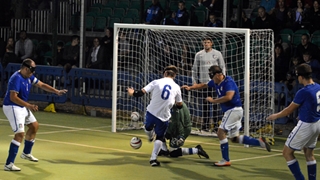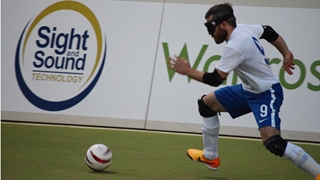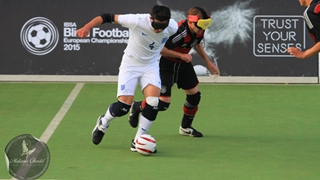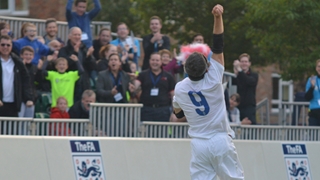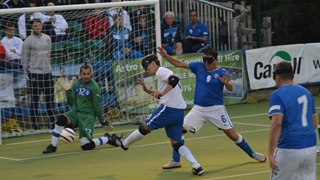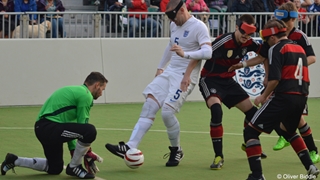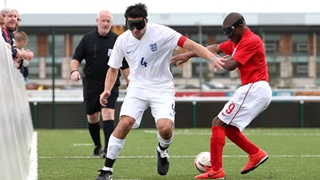
Then came a chance conversation between a friend and one of the coaches in the national football setup, and 99 caps later the rest is history.
“My friend knew the coach and told him about me. I was given a phonecall and that afternoon I was on the train to a training camp in Hereford,” explains the 33-year-old from Exeter.
England v Russia
IBSA Blind European Championship
Semi-final
thePoint4, Hereford
3pm Friday 28 August 2015
“I lost my sight in 2002 and played international blind cricket between 2002 and 2007.
“It was about the time that London had been given host status for the Paralympics and cricket wasn’t one of the events. I really wanted to get involved.
“Football was always my first love and I was just delighted to get back involved with the game.”
“So playing football for England came purely by chance because the pathways into the game weren’t what they are now – but we’re all much more professional now.”
Seal is England’s captain and a driving force behind their run to the semi-finals of the IBSA Blind European Championships in Hereford.
On Friday afternoon they play Russia, knowing a win would not only seal a place in the final but also qualification for the 2016 Paralympics in Rio de Janeiro.
England have won every game so far, conceding only once, and living up to their pre-tournament billing as gold-medal contenders.
But Bridgend-born Seal is taking one step at a time – just as he has done all his life.
“I was born visually impaired and only lost my sight at 20, but I always grew up playing football, rugby and cricket with my sighted peers,” he said. “From the age of seven or eight I was playing informal football and rugby and then formal football from 14.
“It was something I had to do because I didn’t know about disability sport until I was 16.”
Seal admits not every partially sighted or blind person might have the confidence to throw their body around in mainstream football – but that is what makes disability sport so important.
“It’s not just for the health benefits which are obvious, but also in terms of being social and getting out there. Some of the best friends I have have come through playing sport,” he said.
“Blind football helps you as a blind person in your everyday life. Having the confidence to run around a pitch with seven other blind people on it can also translate to your everyday life in terms of confidence, stability and moving around your home town or area or wherever you may be.
“You don’t have to be an England international. You can play in National League, or local leagues. It’s just a chance to travel the country and meet people and have fun.”
But just like in mainstream football, where so many dare to dream of playing for England, Seal believes it is vital that blind footballers have the opportunity to represent their country.
“You have got to allow people who have the talent and the ambition to go as far as they can,” he said.
“To have an England shirt as that pinnacle, that something to aim for is fantastic.
“I’ve done it 99 times now but every time I do it that surge of adrenalin is there.
“Nothing can really match that for me. So to have something to aim for is fantastic – and if you are blind or sighted, able-bodied or disabled, it doesn’t matter.”




